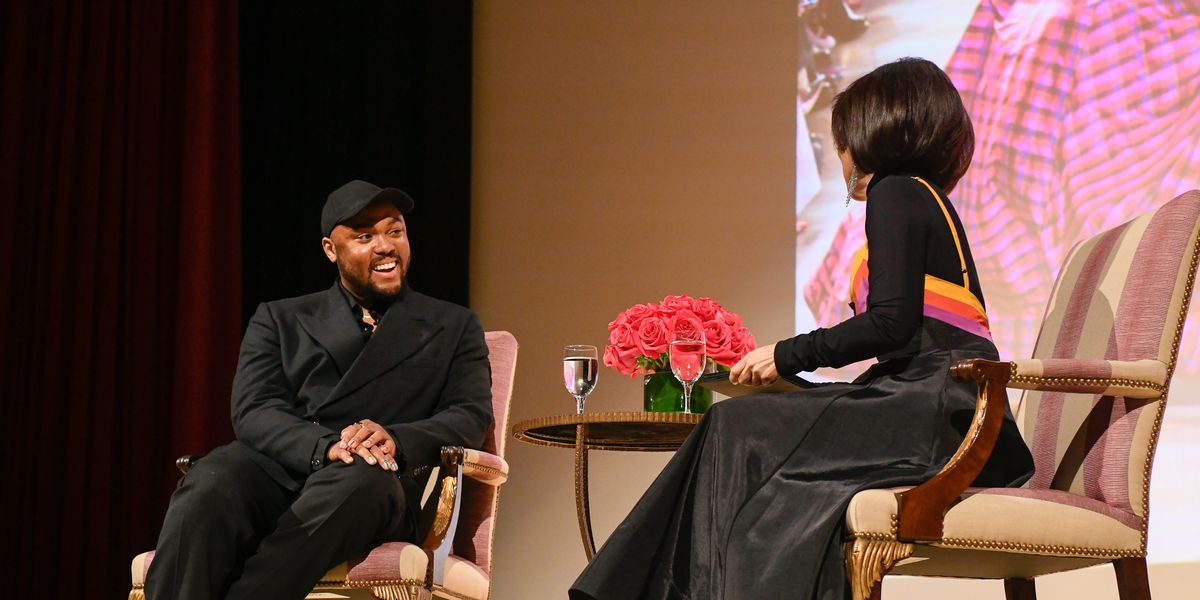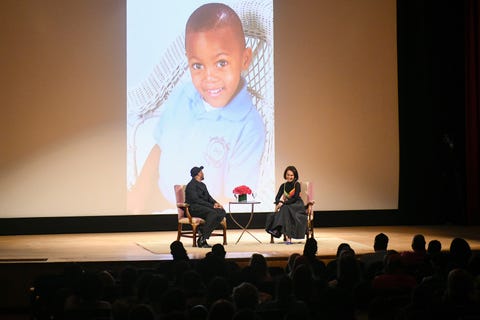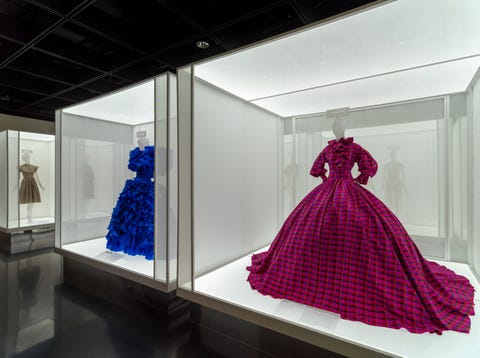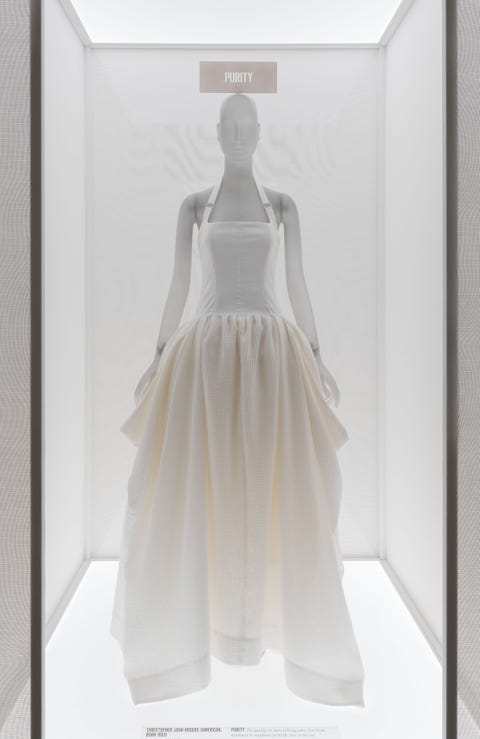Christopher John Rogers’ designs are hard to miss. His audacious, “pragmatic glamour” (his words) is instantly identifiable, and decidedly not shy. It’s a bit ironic, then, that Rogers was visibly nervous to take the stage for his first-ever live interview last night at the Metropolitan Museum of Art. Rogers joined the stage with fashion journalist and CBS Sunday Morning contributor Alina Cho to discuss his whirlwind ascent to the peak of the fashion industry. Despite Rogers’ escalating nerves beforehand, he was quickly at ease with Cho, allowing his unique charisma and candor to come through in a conversation about his career path, how to design with nuance, and what it means to dress women today.
From sewing his first collection at his dining room table with a few close friends in 2017 to being heralded as fashion’s Next Big Thing less than five years later, Rogers has succeeded in a way every young designer dreams of. However, he expressed discomfort with the label “industry darling,” noting how others, specifically New York fashion designers, have been called such and quickly burned out due to industry demand. Fortunately, his close circle of friends (knitwear designer Henry Zankov, for one) and tight-knit group of employees have kept him grounded and singularly focused throughout his ascent. Rogers went on to insist that his career would be drastically different if he ended up at his dream school, Parsons, instead of the Savannah College of Arts and Design, where he met Christina Ripley, his brand director and best friend, on their first day of school.
That experience enabled Rogers to learn about fashion in a southern environment, and as a Baton Rouge, Louisiana native, provided him with a tangible relatability that New York simply couldn’t have provided. His unique take on ready-to-wear invites the wearer to indulge in the everyday task of getting dressed, whether opting for silk-satin colorblock wide-leg trousers or a voluminous gradient-dot skirt. When you wear CJR, you feel empowered by Rogers’ color choices, which he works with “as an object” that often serve as the basis for each collection.
For what it’s worth, Rogers’s work has now been featured twice in the Costume Institute, in both the first and second rotations of In America: A Lexicon in Fashion. The two looks demonstrate the breadth of his work, the first being a dramatically oversized ballgown skirt and puff-sleeved blouse rendered in pink-purple plaid taffeta; the second, a subdued white halter-neck gown in simple cotton and seersucker organza from Collection 009.
After his discussion with Cho, Rogers sat down exclusively with ELLE.com to discuss the future of American fashion, his brand, and what being in the Met twice really feels like.
I know you draw a lot of inspiration from music. Is there a certain song, album, or artist you’ve been listening to while designing your latest collection?
Not one artist in particular. I’m sure everyone does this, but I make playlists from songs I find and just add them to the playlist. After a season in time is done—like Spring 2019 has its own playlist—then the playlist is complete.
How does it feel to have two dresses in two different exhibits, back to back?
It’s kinda gaggy! I honestly don’t ever really think about it. I never really take those moments in. I know the right answer is that it’s gaggy, but I’m not even thinking about it. But it is crazy.
Most designers would take that and use it as an excuse to rest on their laurels. You talked about industry darlings and their rise and fall. A lot of people view your career as meteoric, but is this just the beginning?
I feel like there are so many different ways that people categorize designers and industry darling is one of them, but I’d rather be the smaller, more niche, more underground person doing well and being small than being this huge, or apparently huge, brand or person.
You want to be everything to some people, not something to everybody.
Exactly.
It seems like everyone wants young hot designers to be stocked everywhere and scale very quickly.
We don’t do that, and I don’t need to do that. I’m so lucky because I have an amazing team who reminds me of that. As much as I’m a creative person, I’m also a business person. I enjoy strategy, and I’m always like, “Maybe we should make this for this girl, who’s not really into it,” and then I stop and say, “Wait, there’s already a girl who’s into it.”
Is there anything in the American fashion landscape that you think is lacking? Or is there anything you’ve seen recently that you appreciate?
I think diversity is lacking, not necessarily in terms of race, but in all areas. Specifically aesthetically, there is a lack of diversity. There isn’t a lot of aesthetic diversity, and there aren’t enough people fostering change. For example, I think Vaquera is an amazing brand, and especially since Comme des Garçons has invested in them, their merchandising is great, their quality is better, so why are they not in all these stores? Same with Elena Velez. I think she’s so talented, so where is the American fashion industry support for her work?
What’s your hope for the future of American fashion?
I want for American fashion to do its own thing and stop looking everywhere else for inspiration and direction. There was a moment when we were the leaders giving powerful fashion moments. We need to push forward in a way that doesn’t consider trend. There are enough talented folks here who can do it. Let’s give them the recognition they deserve and truly support them.
This content is created and maintained by a third party, and imported onto this page to help users provide their email addresses. You may be able to find more information about this and similar content at piano.io



